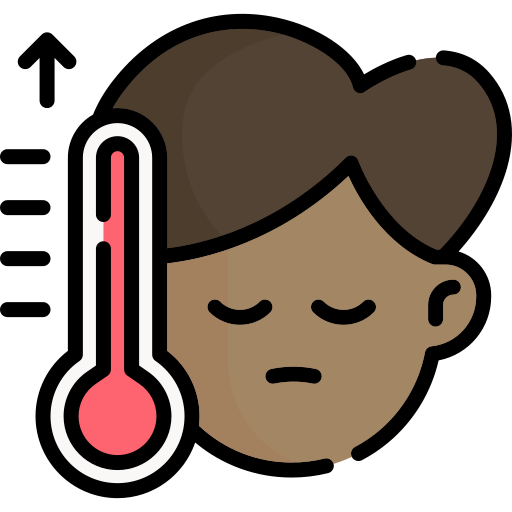Fever

A fever is a temperature of 100.4° or greater rectally. Temperatures normally vary during the day. Children can have temperatures up to 100° as a normal variation. Fever is a symptom of an illness and finding the cause may require a visit to the office. If your child is less than 2 months old with a fever of 100.4° or greater, please call our office before administering any medication. A rectal temperature is most accurate since it picks up temperatures from the body’s core.
What to do:
- It is not necessary to treat a temperature less than 102°, unless the child is uncomfortable
- For a temperature of 102° or more, or if the child is uncomfortable, give Tylenol or some other form of acetaminophen (see dosage chart). You may also give Motrin or ibuprofen if the child is 6 months or older (see dosage chart).
- Encourage fluids
- Keep the child cool
- Use a minimum of clothing; keep the house cool; if temperature is 104° or greater, sponge bathe or bathe the child in lukewarm water for 10-15 minutes.
Call us immediately if:
- The fever is 105° or higher after fever-lowering medicine has been given or the child is less than 6 months of age
- He looks and acts extremely ill (i.e., is difficult to arouse, refuses to eat, is disinterested in playing, speaks without making sense, or appears extremely sick after fever-lowering medicine has been given.)
- The fever is greater than 100.5° in an infant less than 2 months of age.
- The child has a convulsion for the first time (body stiffness, eyes roll, limbs jerk)
Call us promptly during regular office hours if:
- The fever is greater than 101° for more than 24 hours and your child is under 1 year of age
- The fever comes and goes, but other symptoms are present for more than 3 days
